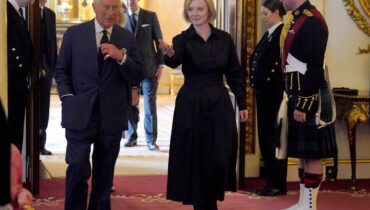The inflation problem continues to preoccupy the central banks. They are likely to maintain their basic restrictive stance until inflation rates have convincingly embarked on a downward trend.


The inflation problem continues to preoccupy the central banks. They are likely to maintain their basic restrictive stance until inflation rates have convincingly embarked on a downward trend.

What do global risks and rising interest rates mean for the economy? We talked to
Prof. Dr. Ernest Gnan, Secretary General of SUERF – The European Money and Finance Forum and former Head of the Economic Analysis Department of the Oesterreichische Nationalbank.

The latest US labor market data suggest that the Fed will remain on its course of more restrictive monetary policy. “As long as job growth remains strong and unemployment and participation rates remain low, the Fed will maintain its basic restrictive stance”, writes Head Economist Gerhard Winzer in his market commentary.

Last Wednesday, the countries of the OPEC+ oil alliance decided on a comprehensive reduction in oil production. As early as November, 2 million barrels less per day will be produced. Many countries fear a rise in oil prices.

The mood on the capital markets has deteriorated further over the last months. In a comprehensive market update, Gerald Stadlbauer, Head of Discretionary Portfolio Management at Erste Asset Management, explains why stamina is needed in the current situation.
The unexpectedly high inflation rates draw even wider circles. In view of the pessimistic mood, the question arises whether the negative environment is already being reflected by market prices.

Italy has voted: The party “Fratelli d’Italia” around top candidate Giorgia Meloni was the election winner. The center-right alliance together with the parties “Lega” and “Forza Italia” achieved an absolute majority. What consequences could the election results have for the country, its economy and cooperation with the European Union?

Central banks are responding to high inflation by raising key interest rates. Further key rate hikes are likely this week as well.

The death of Queen Elizabeth II, her succession by Charles III and the appointment of the new prime minister, Liz Truss, mark a change of era in Great Britain. The government’s focus is on the fight against inflation and high energy prices.

Last week, three major central banks have raised their key interest rates further. By nature, however, it is not easy to find the right key interest rate level – especially in the current environment.